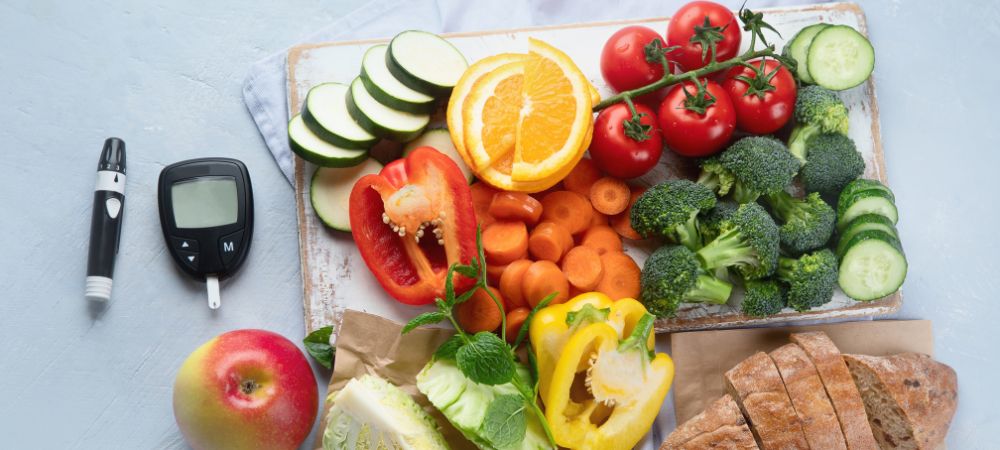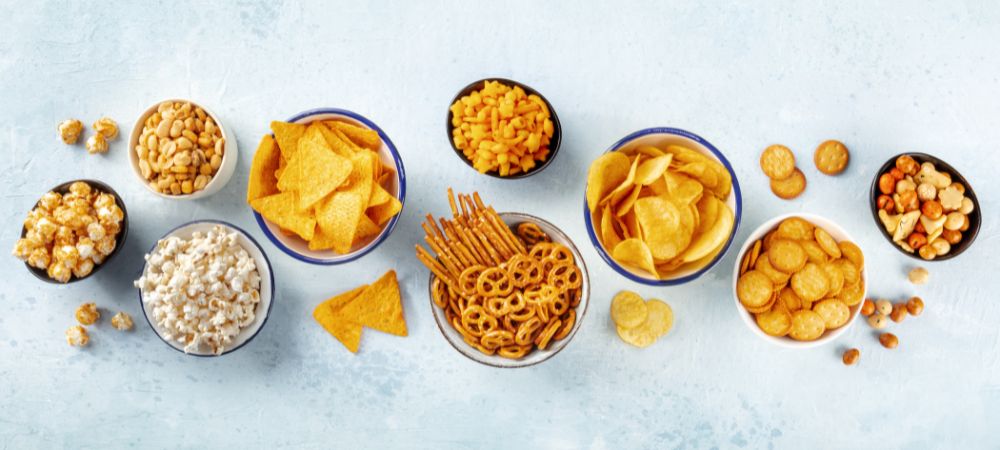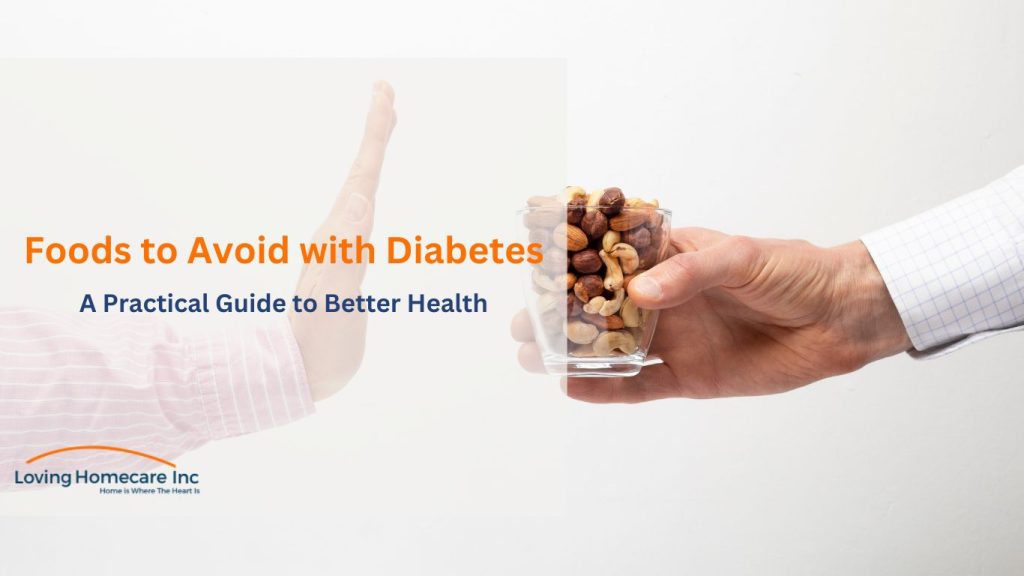Quick Summary
- Managing diabetes requires careful attention to the diet.
- Avoid foods that can cause blood sugar levels to increase and pose health risks.
- Opt for healthy fats and fiber-rich vegetables, stay hydrated, and exercise regularly.
Introduction
Managing diabetes is more than taking medication or checking your blood sugar levels—it’s about making healthy choices. A big part of this is your diet. The food you eat can help keep your blood sugar levels balanced or prevent diseases that can cause problems.
This guide will help you understand what foods to avoid with diabetes and choose alternatives to improve your mood and overall health.
Why is Your Diet Important in Managing Diabetes

Diabetes, whether type 1 or type 2, affects your body’s ability to manage glucose (sugar). Foods that raise blood sugar put stress on your body, whereas some foods help keep it in normal ranges.
Making smart food choices and a meal plan for diabetes will not only help you manage your blood sugar but also reduce the risk of long-term problems like heart disease, kidney problems, and nerve damage.
Key takeaway: Avoid foods that affect your blood sugar and overall health.
Foods to Avoid for Better Diabetes Management
1. Sugary Foods and Drinks
- Examples:
- Sugary sodas and fruit juices
- Sweets and chocolate
- Desserts like cookies, cakes, and pastries
- Why Does it Matter?
- These foods spike blood sugar quickly and can lead to long-term insulin resistance.
2. Refined Carbohydrates
- Examples:
- White bread
- White rice
- Plain pasta
- Why Does it Matter?
- Refined carbs cause rapid blood sugar spikes and high blood pressure.
3. Foods High in Unhealthy Fats
- Examples:
- Fast foods like fries and hamburgers
- Snacks like chips and crackers
- Why Does it Matter?
- These increase the risk of heart disease and other complications.
4. Salty, Processed Foods

- Examples:
- Canned soups
- Salty vegetables
- Why Does it Matter?
- Excess sodium can lead to high blood pressure and worsen diabetes.
5. High-Fat Dairy Products
- Examples:
- Cream, butter, certain cheeses
- Why Does it Matter?
- High in saturated fats, they raise cholesterol levels and increase heart disease risk.
6. Alcoholic Beverages
- Why Does it Matter?
- Can cause blood sugar levels to drop.
- Sugary mix-ins add unnecessary carbohydrates.
7. Hidden Sugars in “Healthy” Foods
Even foods that are labeled “healthy” may contain large amounts of hidden sugars. For Diabetes Care, always be cautious even when you are buying the items such as:
- Examples:
- Flavored yogurt
- Granola bars
- Bottled salad dressings
- Smoothies and fruit juices
- Why Does it Matter?
- These foods often contain hidden sugars that can spike blood sugar.
Making Wise Food Choices
- Examples of healthier alternatives:
- Sugary drinks → Water with lemon or unsweetened herbal tea
- White bread → Whole-wheat bread
- Fried foods → Baked, broiled, or grilled foods
- Regular pasta → Wheat- or bean-based pasta
Reading Food Labels: Important for People with Diabetes
- What to check:
- Serving size
- Added sugars
- Sodium content
Establishing Healthy Eating Habits
- Focus on:
- Fiber-rich foods: Whole grains, beans, fresh vegetables
- Healthy fats: Avocados, nuts, seeds, olive oil
- Lean proteins: Skinless chicken, fish, tofu, eggs
Lifestyle to Compliment Your Diet
- Staying hydrated
- Planning meals in advance
- Working with a nutritionist
Conclusion
Managing diabetes means making smarter choices for effective care. Avoid processed and sugary foods, replace them with healthier alternatives, and adopt a supportive lifestyle.

